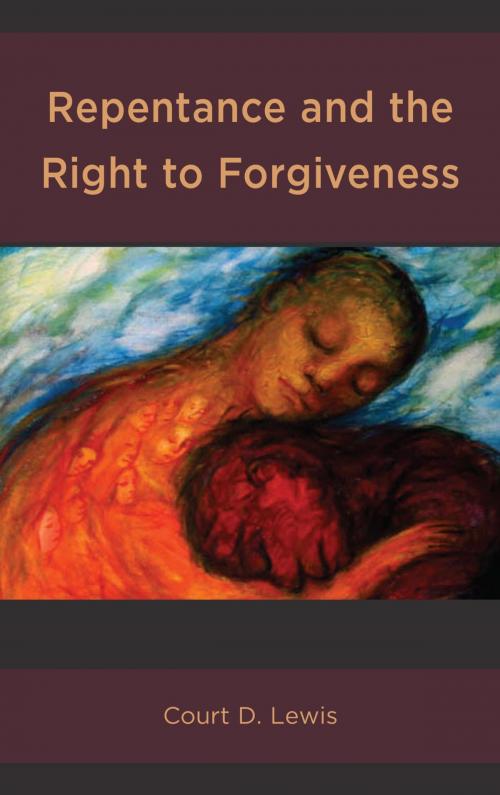Repentance and the Right to Forgiveness
Nonfiction, Religion & Spirituality, Theology, Ethics, Philosophy, Religious, Ethics & Moral Philosophy| Author: | Court D. Lewis | ISBN: | 9781498558617 |
| Publisher: | Lexington Books | Publication: | September 15, 2018 |
| Imprint: | Lexington Books | Language: | English |
| Author: | Court D. Lewis |
| ISBN: | 9781498558617 |
| Publisher: | Lexington Books |
| Publication: | September 15, 2018 |
| Imprint: | Lexington Books |
| Language: | English |
Repentance and the Right to Forgiveness adds the voice of rights theory to contemporary discussions on forgiveness. Rights have been excluded for two related reasons: first, forgiveness is often framed as “a gift” to wrongdoers; and second, rights suggest that victims are obligated in certain cases to forgive their wrongdoers. Such an obligation is often considered repugnant, for it unjustifiably wrongs (i.e., victimizes) victims, while benefiting wrongdoers. Repentance and the Right to Forgiveness overcomes this repugnancy by utilizing the moral theory of eirenéism to craft a rights-based theory of justice grounded in the inherent worth and intimate moral relationships between victims, wrongdoers, and their social community, in order to show that the particular needs of victims make the obligation to forgive self-beneficial while also promoting a peaceful state of just flourishing.
Repentance and the Right to Forgiveness adds the voice of rights theory to contemporary discussions on forgiveness. Rights have been excluded for two related reasons: first, forgiveness is often framed as “a gift” to wrongdoers; and second, rights suggest that victims are obligated in certain cases to forgive their wrongdoers. Such an obligation is often considered repugnant, for it unjustifiably wrongs (i.e., victimizes) victims, while benefiting wrongdoers. Repentance and the Right to Forgiveness overcomes this repugnancy by utilizing the moral theory of eirenéism to craft a rights-based theory of justice grounded in the inherent worth and intimate moral relationships between victims, wrongdoers, and their social community, in order to show that the particular needs of victims make the obligation to forgive self-beneficial while also promoting a peaceful state of just flourishing.















